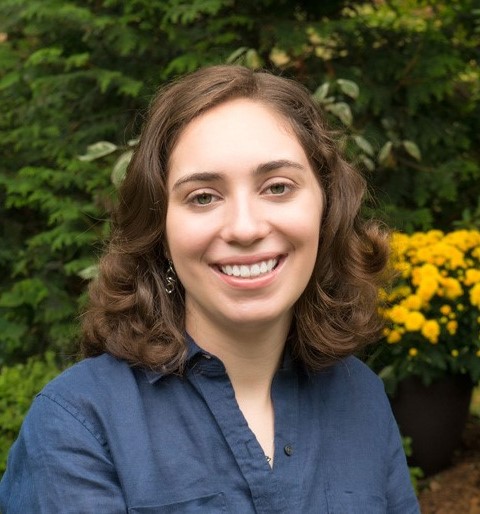About Me

Emma Lurie, J.D., Ph.D.
As a public interest technologist and interdisciplinary researcher, I focus on the intersections of platforms, democracy, and law. I combine algorithm auditing, empirical research, and legal analysis to address how platforms and tech policy can promote democratic values and protect civil liberties. I am currently a postdoctoral researcher in Computer and Information Science at the University of Pennsylvania, working with Professors Danaé Metaxa (UPenn) and Sorelle Friedler (Haverford) on civil rights-focused audits of AI systems.
I recently completed my PhD in Information Science at UC Berkeley and JD at Stanford Law School. My dissertation, "Searching for Accountability: Contested Harms, Algorithmic Audits, and the Governance of Sociotechnical Systems," offers an interdisciplinary framework for analyzing sociotechnical harms that arise from the complex interactions of platform design, regulatory structures, and expert discourse.
Previously, I've had the opportunity to work with teams at the Knight First Amendment Institute, CISA's Office of General Counsel, Stanford Internet Observatory, ACLU of Northern California's Technology and Civil Liberties team, Plaintext Group, Wellesley College Cred Lab, MIT Election Data and Science Lab, and the U.S. Census Bureau. During law school, I also represented clients through the Stanford Criminal Defense Clinic. I have a BA in Computer Science and Chinese Language & Culture from Wellesley College.
Research
- Civil Rights-Focused AI Auditing: Developing and applying methods to conduct civil rights-focused audits of AI systems, with particular attention to online speech and criminal justice contexts.
- Algorithm Auditing Online Election Information: Conducting sociotechnical audits of search engines and LLMs on topics relating to information access and democratic processes, with particular interest in evaluating information quality in the context of local elections and down ballot contests.
- Sociotechnical Governance: Investigating how breakdowns in sociotechnical infrastructures arise, how experts identify and frame them as harms, and how responsibility for repair is allocated across institutions and actors.
- Legal Text as Data: Applying computational methods to legal analysis, including novel applications of large language models to process legal texts at scale. This includes analyzing judicial interpretations of technology-mediated harms and studying the evolution of doxxing and Section 230 jurisprudence.
Publications
Peer Reviewed Papers
-
Search quality complaints and imaginary repair: Control in articulations of Google Search.
Daniel Griffin* and Emma Lurie*.
New Media & Society 2022. -
Reconfiguring Diversity and Inclusion for AI Ethics.
Nichole Chi, Emma Lurie, and Deirdre K. Mulligan.
AIES 2021. -
'Highly Partisan' and 'Blatantly Wrong': Analyzing News Publishers' Critiques of Google's Reviewed Claims.
Emma Lurie and Eni Mustafaraj.
Truth and Trust Conference 2020. -
The Case for Voter-Centered Audits of Search Engines During Political Elections.
Eni Mustafaraj, Emma Lurie, and Claire Devine.
ACM FAccT 2020. -
Opening Up the Black Box: Auditing Google's Top Stories Algorithm.
Emma Lurie and Eni Mustafaraj.
AAAI FLAIRS 2019. -
Investigating the Effects of Google's Search Engine Result Page in Evaluating the Credibility of Online News Sources.
Emma Lurie and Eni Mustafaraj.
WebSci 2018.
Preprints
-
The Construction of Doxxing in Judicial Opinions.
Emma Lurie. -
Longitudinal Monitoring of LLM Content Moderation of Social Issues.
Yunlang Dai*, Emma Lurie*, Danaé Metaxa, Sorelle A. Friedler. -
Searching for Representation: A Sociotechnical Audit of Googling for Members of Congress.
Emma Lurie and Deirdre K. Mulligan. -
Google Says So(S): An Examination of the Entanglement of Search Engines and Information on Ballot Propositions.
Emma Lurie.
Non-Archival Publications
-
Who needs imagination? Exploring legal professionals' lack of curiosity about e-discovery tools.
Emma Lurie and Deirdre K. Mulligan.
Designing Technological Systems with the Algorithmic Imaginations of Those Who Labor Workshop at CHI'21. -
Crowdworkers Are Not Judges: Rethinking Crowdsourced Vignette Studies as a Risk Assessment Evaluation Technique.
Emma Lurie and Deirdre K. Mulligan.
Fair and Responsible AI Workshop at CHI'20. -
Investigating Causal Effects of Instructions in Crowdsourced Claim Matching.
Emma Lurie, Lucy Li, Sofia Dewar, Masha Belyi, Daniel Rincón, John Baldwin, and Rajvardhan Oak.
Computation + Journalism 2020. -
Considering Contestability in Automated Fact-Checking Systems.
Emma Lurie.
Contestability Workshop at CSCW 2019. -
The Challenges of Algorithmically Assigning Fact-checks: A Sociotechnical Examination of Google's Reviewed Claims.
Emma Lurie.
Undergraduate Thesis, 2019. -
How the Interplay of Google and Wikipedia Affects Perceptions of Online News Sources.
Annabel Rothschild, Emma Lurie, and Eni Mustafaraj.
Computation + Journalism 2019.
Other Writing
-
JD/PhD Advice for Prospective Students.
Emma Lurie.
Medium. September 2024. -
Comparing Platform Research API Requirements.
Emma Lurie.
Tech Policy Press. March 2023. -
TikTok just announced the data it's willing to share. What's missing?
Emma Lurie.
Stanford Internet Observatory Blog. February 2023. -
Tips for Working with an Undergraduate Research Advisor.
Emma Lurie.
Medium. June 2021. -
What is "good enough" for automated fact-checking?
Emma Lurie.
Towards Data Science. August 2019. -
Googling for the Kansas Primary.
Emma Lurie.
Medium. August 2018. -
Why Google Isn't Always Right.
Emma Lurie.
The Spoke. October 2017.
Contact
Email: ewlurie [AT] seas.upenn.edu
Twitter: @emma_lurie